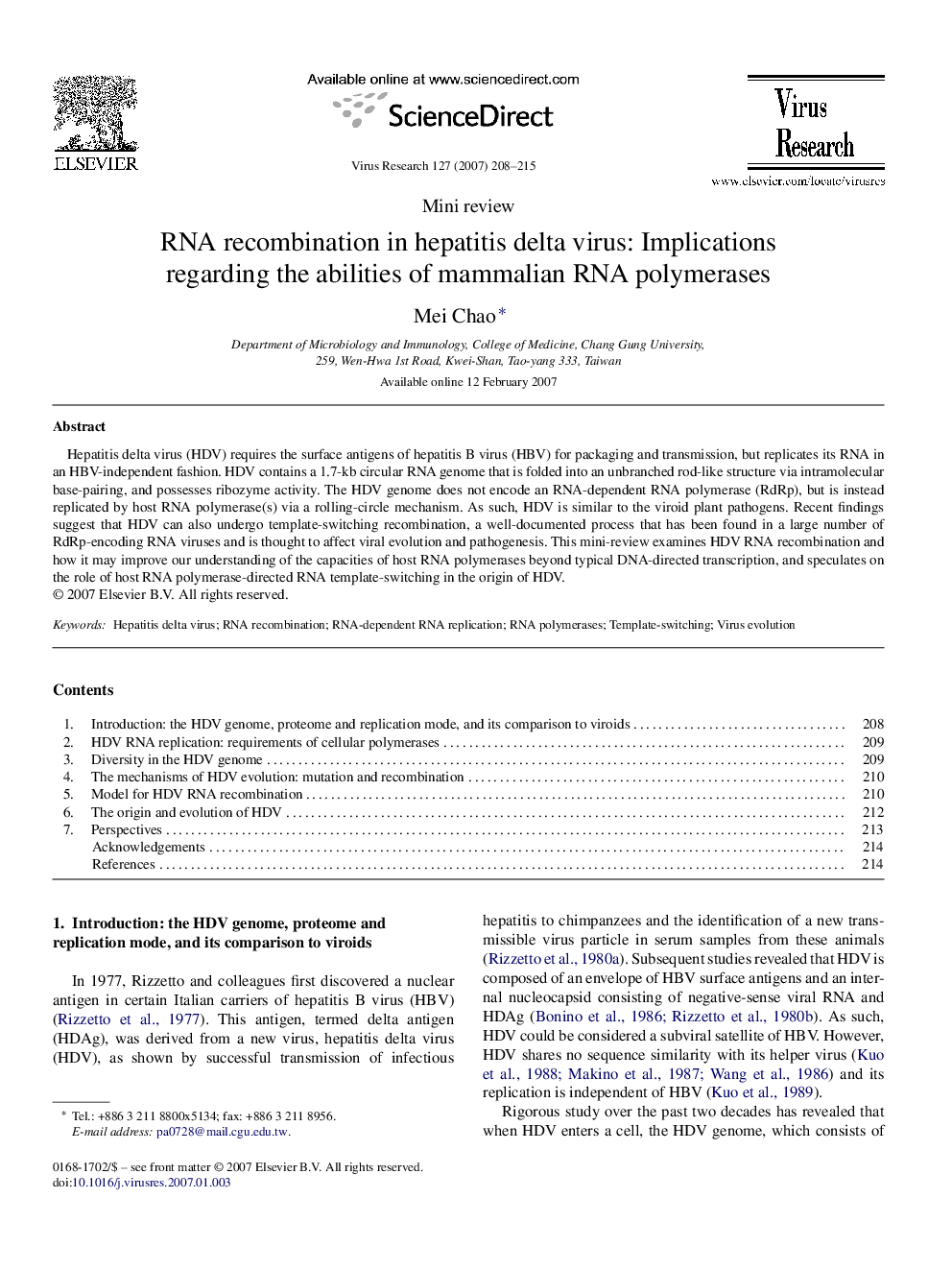| Article ID | Journal | Published Year | Pages | File Type |
|---|---|---|---|---|
| 3430740 | Virus Research | 2007 | 8 Pages |
Hepatitis delta virus (HDV) requires the surface antigens of hepatitis B virus (HBV) for packaging and transmission, but replicates its RNA in an HBV-independent fashion. HDV contains a 1.7-kb circular RNA genome that is folded into an unbranched rod-like structure via intramolecular base-pairing, and possesses ribozyme activity. The HDV genome does not encode an RNA-dependent RNA polymerase (RdRp), but is instead replicated by host RNA polymerase(s) via a rolling-circle mechanism. As such, HDV is similar to the viroid plant pathogens. Recent findings suggest that HDV can also undergo template-switching recombination, a well-documented process that has been found in a large number of RdRp-encoding RNA viruses and is thought to affect viral evolution and pathogenesis. This mini-review examines HDV RNA recombination and how it may improve our understanding of the capacities of host RNA polymerases beyond typical DNA-directed transcription, and speculates on the role of host RNA polymerase-directed RNA template-switching in the origin of HDV.
